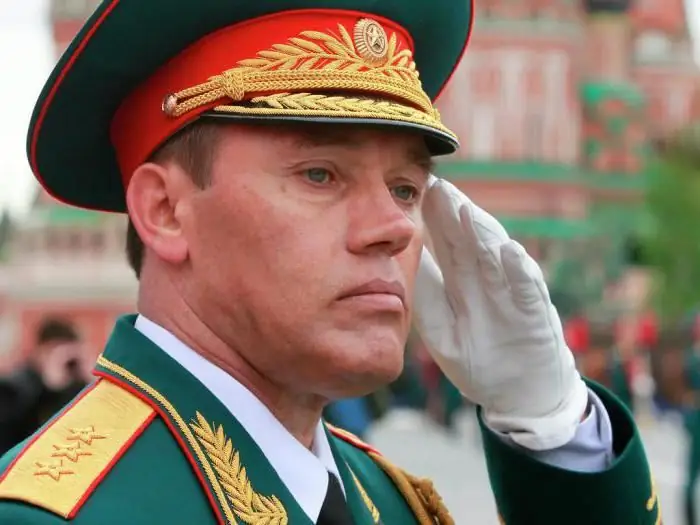- Author Henry Conors [email protected].
- Public 2024-02-12 02:44.
- Last modified 2025-01-23 09:07.
Abdul-Rashid Dostum is an Afghan politician and former warlord. Since 2014, he has been acting vice president of the country. During the existence of the regime of Najibullah, Dostum had the rank of an army general and fought on the side of the government. Subsequently, he repeatedly entered into various military alliances. Sometimes Dostum's former enemies became allies, and vice versa. A protracted civil war led to the destruction of the central government in Afghanistan. General Dostum turned into the de facto ruler of the territories that were under the control of his armed forces. In 2013, the former field commander officially apologized for his mistakes during the civil war.
Early years
Abdul-Rashid Dostum is considered an ethnic Uzbek. He was born in the Afghan province of Jowzjan in 1954. Due to financial problems in the family, Dostum received only a basic traditional education. At a young age, he began working in the state gas industry. In 1978, Dostum enlisted in the army. He served in a detachment that was subordinate to the Ministry of National Security.

Army career
During the presence of Soviet troops in Afghanistan, Dostum was appointed commander of a government division. Its personnel was formed mainly from ethnic Uzbeks. The division fought against the forces of the Mujahideen. Dostum reported directly to President Najibullah, who promoted him to the rank of general.
Shortly after the withdrawal of Soviet troops, Afghan Defense Minister Tanai organized an armed rebellion to overthrow the regime. General Dostum participated in the suppression of an attempted military coup. During that period, he developed his own political views and began to support the idea of federalization of the country.

Civil War
After the fall of the pro-Soviet regime of President Najibullah, General Dostum made an alliance with the opposition forces. He became an independent field commander. Dostum's division contributed to the capture of the country's capital by rebel groups. This was followed by a series of armed conflicts between opposition leaders. During the confrontation of many different factions, Dostum often moved from one alliance to another. In relation to some field commanders, he happened to be in the role of both an enemy and an ally.

Northern Alliance
The development and strengthening of the Taliban movement has become a serious threat to the rest of the Afghan military formations. General Dostum and several other influential field commanders created to fight the generaladversary of the so-called Northern Alliance. This happened in 1996 after the capture of Kabul by the Taliban.
General Dostum received full control over a number of provinces in the north of the country. He deployed his troops in the city of Mazar-i-Sharif, which became the capital of a virtually independent territory. Dostum printed his own currency, which was in circulation in the provinces subject to him.
The military actions of the Northern Alliance against the Taliban movement went with varying success. Dostum's army failed to defend its territory. She, including the city of Mazar-i-Sharif, was in the power of the Taliban. Dostum was forced to emigrate from the country.

Return
In 2001, the military operation of the US Army called "Enduring Freedom" began in Afghanistan. Its main goal was to destroy the Taliban regime. The actions of the American armed forces received support from the Northern Alliance. Within months, the Taliban were defeated.
During these events, General Dostum returned from exile. The biography of an independent field commander has entered a new phase. Dostum was offered the position of deputy defense minister in the new Afghan government. In 2014, he was elected Vice President.
Political views
During the reign of Dostum, relatively liberal laws were in force in the territories subject to him. Women were not forced to cover their faces in public places, girls were allowed to attend school, television broadcast Indian music and films.production. The Taliban regime strictly forbade such things.
Dostum is the leader of the National Islamic Movement of Afghanistan. It is a political party dominated by ethnic Uzbeks.






